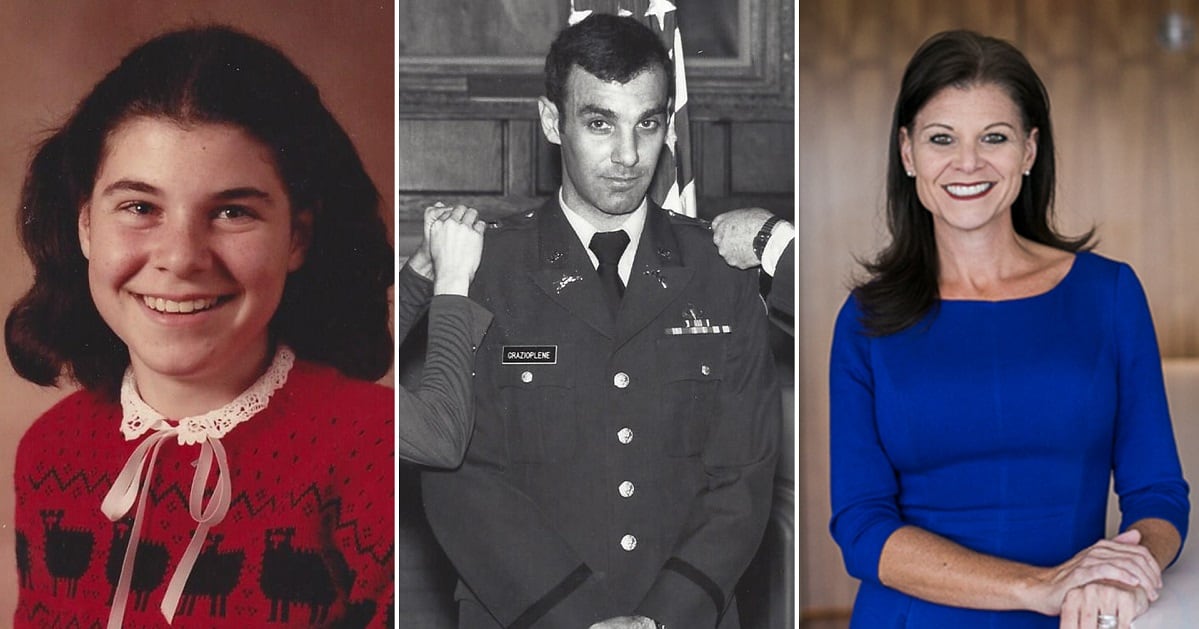A 52-year-old Army wife got three years in prison for harassing her adopted daughter to prevent her from telling police about years of sexual abuse she and her five adopted siblings endured.
Shanynn Kemp, of Cameron, North Carolina, was sentenced Wednesday to three years in federal prison and one year of supervised released after pleading guilty back in December to obstruction of justice, according to a U.S. Attorney’s office statement.
Her husband, Chief Warrant Officer 4 Daniel Kemp Sr., 51, was on active duty when he raped and sexually abused his six adopted children. As the investigation was being conducted, Shanynn began harassing the children, according to court documents.
The abuse included repeated sexual assault and forced viewings of pornographic videos alongside their adoptive father.
Daniel Kemp was sentenced to life in prison on July 8 after pleading guilty on Dec. 11 to one count of aggravated sexual assault of a minor, Army Times previously reported.
RELATED

According to federal court documents and a federal prosecutor’s statement:
Daniel Kemp joined the Army on Aug. 28, 1991. In December 2000, he and his wife Shanynn adopted six children while stationed at Fort Drum, New York, according to court records. When he was arrested in 2017, Kemp was assigned to 1st Theater Sustainment Command at Fort Knox, Kentucky. His string of abuse occurred at Fort Sill and Fort Bragg, according to court documents.
The family moved along with Daniel as he was stationed at other locations throughout his Army career.
In July 2016 they were stationed at Fort Bragg, North Carolina. That month, one of his adopted female children described in court documents as “Victim 1″ of six total victims, reported to her teacher, guidance counselor and social worker and to Army Criminal Investigations Command that she was being “sexually abused by KEMP,” according to court records.
Though 18-years-old at the time she reported the incidents, she told authorities the abuse had begun in 2013 while the family was stationed at Fort Sill, Oklahoma and it continued.
She had recorded photos of physical abuse and shared those with authorities.
Authorities went to the home with child protective services, where Shanynn and the siblings were present. The siblings denied being sexually abused.
The next day a social worker phoned Shanynn to conduct interviews of her and three of the children. Shanynn refused and told them she had left the state and traveled to Alabama with the children.
“Mrs. Kemp said she was outside of their ‘jurisdiction’ and nothing could be done,” according to court records. “Mrs. Kemp hung up on the social worker.”
She then called Army CID and said the alleged victim was lying about the abuse.
A week later the Fort Bragg-area high school the victim had attended received a records request for another of the siblings, who was a minor at the time.
The social worker spoke with Shanynn who said she was not allowing the elder victim to attend high school, although she was five weeks away from graduation.
CID located the third sibling victim — the second oldest child, labeled “victim 3” in court documents. Victim 3 was unaware of the investigation and reported being “alienated from the family.”
As the investigation progressed the adopted children individually told authorities about depraved acts that Daniel Kemp had subjected them to. At times, some of the siblings did not know the others were suffering from the abuse. In other instances, siblings witnessed evidence of abuse others’ abuse or saw outright incidents.
On May 11, 2017, CID agents conducting surveillance at an Arlington, Texas near an address for Victim 2′s high school spotted Victim 1 and her other adult sister and Shanynn leaving the house.
The approached and Victim 1 said, “I thought you guys would never find me, I am so scared.”
Victim 1 said her mother forced her to recant what she told the police but it was all true. She said her adoptive mother told her if she continued to tell people that Daniel Kemp had abused her that he would either take his own life or go to prison, which would mean they “would not have any healthcare or money.”
“Mrs. Kemp told Victim 1 that if she did not have healthcare, then she would not be able to get her necessary medication that allows her to live,” according to court documents.
Todd South has written about crime, courts, government and the military for multiple publications since 2004 and was named a 2014 Pulitzer finalist for a co-written project on witness intimidation. Todd is a Marine veteran of the Iraq War.




